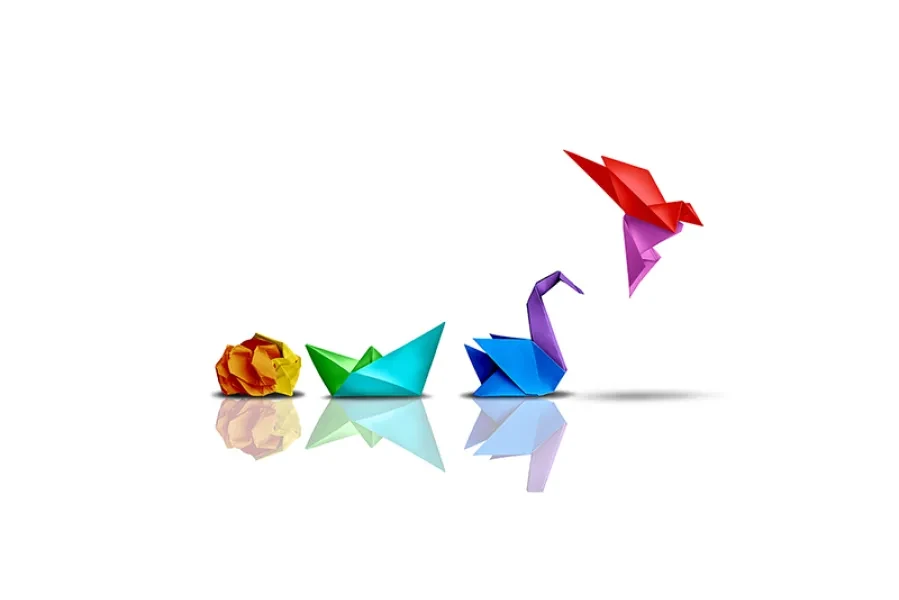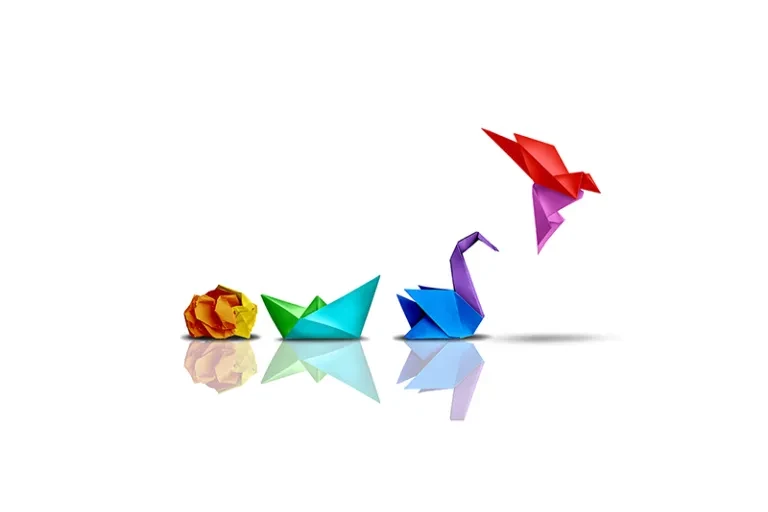The Teaching and Learning Conference (TLC) may have wrapped up, but the conversation continues. Access the TLC 2025 platform through February 6, 2026, to revisit sessions and connect with peers around "The Science and Soul of the Learning Organization." You can also explore the TLC 2025 Playlist to view conference presentations.
Please take a moment to submit your post-conference survey. The TLC learning community feedback is critical to ensuring TLC delivers development focused on what is important to you.
Please access the conference portal to provide feedback on the TLC sessions via the link embedded in the individual session description. Your feedback will be used to determine conference awards and will be shared with presenters.
The Science and Soul of the Learning Organization
How do organizations ignite a culture of continuous learning—one that empowers every member to grow, thrive, and actively shape the organization’s future? Senge (2006) challenged us to think bigger, introducing five powerful disciplines that advance an organization’s potential to create its future. Guided by this framework, the TLC learning community will discover how these dynamic principles come to life through real-world practices and perspectives of students, faculty, and staff at all levels and across every discipline.
Together, we’re not just learning—we’re unfolding new ways of thinking, collaborating, and leading to shape a future in motion.
Presentations will reflect theoretical and practical approaches aligned with Senge’s (2006) five disciplines via the following tracks:
nbsp;
Systems Thinking | Systems thinking involves understanding the interconnectedness of various components. It encourages contemplating the whole and recognizing patterns and relationships versus individual components of a system. This track will explore integrated systems thinking to create holistic learning experiences or enhance teaching practices by understanding the broader educational ecosystem.
Mental Models | Mental models are deeply ingrained assumptions and generalizations that influence how we understand the world and take action. By challenging and refining these models through reflection and discourse, organizations can foster a culture of continuous learning. This track will explore how to identify and shift mental models to support innovation in teaching and learning practices.
Shared Vision | A shared vision is a common goal that inspires and unites members of an organization. It provides direction and motivation for continuous learning. This track will focus on how organizations can cultivate a shared vision that aligns with their educational goals and values.
Personal Mastery | Personal mastery involves individuals continually clarifying and deepening their personal vision, focusing their energies, and developing patience. It is a commitment to lifelong learning. This track will explore how organizations can support a personal mastery mindset.
Team Learning | Team learning is the process of aligning and developing the capacities of a team to create results its members truly desire. It builds on personal mastery and shared vision, emphasizing collaboration and collective learning. This track will examine how organizations can promote team learning to enhance educational outcomes.
By exploring these tracks, the conference will provide a comprehensive understanding of how to cultivate a culture of continuous learning, drawing on practical examples and experiences from various educational contexts.
Keywords: Continuous learning, learning organization, organizational growth, empowerment, educational outcomes, lifelong learning, innovation in education, collaboration, capacity, assessment, vision, reflection, discourse
With over 900 attendees from diverse fields, the annual TLC will feature tracks dedicated to institutional research, early childhood education, doctoral student research, and more! This free virtual event promises valuable networking, the opportunity to publish via peer-reviewed conference proceedings, and diverse learning experiences.. Whether you're a seasoned presenter or a newcomer, TLC's approach to supporting contributors ensures every presenter benefits from mentorship, resources, and collaboration to successfully showcase their work.
New this year: The Teaching and Learning Conference (TLC) proudly welcomes the Early Childhood Education Conference as part of the 2025 event. This partnership expands the scope of TLC while continuing to provide high-quality professional development, collaboration, and community engagement opportunities for early childhood educators and beyond.
Key Dates
- May 21 - Think Tank Session | Register Here
- June 18 - Think Tank Session | Register Here
- July 8 - Think Tank Session | Register Here
- October 1 - Pre-recorded sessions due
- October 21 - Conference platform launches for asynchronous engagement, pre-recorded presentations
- November 4-6 - Live Conference Sessions
TLC Think Tank Sessions - attend to discuss, ideate about, and get feedback on your conference proposal. TLC Think Tank sessions reflect the goals of TLC by supporting our community and empowering them to engage–it's a unique opportunity to engage with scholars and practitioners, foster personal, professional, and intellectual growth, and expand one's network, no matter your background or experience.
- Higher-education thought leaders from across the US and abroad
- Faculty, students, and researchers in all disciplines
- Curriculum developers, instructional designers, and instructional technologists
- Student Affairs and Student Advising professionals
- Library, Writing Center, and academic publishing professionals
- Faculty Support and Development professionals
"Come to TLC you will learn from practitioners and researchers alike, which makes the conference really "feel" like a professional learning community. The session lengths are perfect and the keynote and featured sessions are always dynamic."
"Great conference--I had many takeaways as a new instructor/member of the UAGC team!"
"Opportunity to grow, hone skills, reinforce knowledge, research and pay it forward. A great platform for learning!"
If you're interested in volunteering, sign up to become a Teaching and Learning Conference Volunteer in one of the following roles:
- TLC Ambassador
- Proposal Reviewer
- Conference Session Tech Host
- Conference Session Host
Review the previous TLC presentation recordings and enrich your understanding of key topics discussed in years past.
The TLC Proceedings is a published record of peer-reviewed conference presentations via a journal–type paper presented by conference participants that covers research findings, case studies, and new developments in a specific field. Conference proceedings serve to disseminate research within the academic community, support collaborative discourse, aim to recognize the presenters' work, and provide a valuable feedback channel on the presenters' work. The papers will cover a wide range of topics addressing the current Teaching and Learning Conference theme. One paper will be awarded the Outstanding Paper award for the UAGC TLC Conference.
Read the latest papers and learn more about submitting work for peer review here.
November 3, 2025 - Submit papers here. The UAGC Conference Proceedings will use an online system for all submissions and communication information. Review the submission guidelines prior to submitting your paper. Submitters will receive confirmation that their paper has been received. If you do not receive confirmation that your paper has been received, please resubmit your paper in the portal and email TLC@uagc.edu requesting confirmation of receipt.
By November 24, 2025 - The Teaching and Learning Conference Proceedings editorial board will send peer reviews with suggested revisions to the authors.
By January 12, 2026 - Authors of accepted papers will submit a final version that addresses the peer feedback.
February/March 2026 - Teaching and Learning Conference Proceedings published.
Editorial Board
- Dr. Iman Azzi
- Dr. Sara Bielek
- Dr. Vicki Black
- Megan Broker
- Dr. Carla Crider
- Dr. Ramona Dorough
- Richard Freese
- Dr. Kyeko Herderson
- Dr. Chrystal Jansz
- Dr. Chenille Johnson
- Shelley O'Connor
- Dr. Aneeza Pervez
- Dr. Derrick Robinson
- Dr. Karla Shockley McCarthy
- Dr. David Ssekamatte
- Dr. Jason W. Stegemoller
- Dr. Camille Sutton-Brown
- Dr. Ryan Upshaw
- Victoria West-Pawl
- Dr. Reginald Wilkerson
- Dr. Vahıde Yığıt-Gençten
- Dr. Shelly Zaldivar
Co-Editors
- Dr. Teresa Leary Handy, The University of Arizona Global Campus
- Dr. Jennifer Robinson, The University of Arizona Global Campus
Peer Reviewers
- Megan Broker, Megan Broker Consulting
- Dr. Carla Crider, Tarrant County College
- Dr. Chera Deressa, Mulungushi University
- Dr. Ramona Dorough, UT Southwestern Medical Center
- Dr. Richard Freese, University of Wisconsin-Madison
- Dr. Kyeko D. Henderson, Special Education Consultant
- Dr. Chrystal Jansz, The Chicago School, Applied Behavior Analysis Online
- Dr. Teresa Kuruc, The University of Arizona Global Campus
- Dr. Kennedy Maranga, St. Thomas University
- Dr. Derrick Robinson, North Carolina A&T University
- Dr. David Ssekamatte, Uganda Management Institute
- Dr. Pamela Tanner, Tennessee State University
- Dr. Ryan Upshaw, Millsaps College
- Dr. Vahıde Yığıt-Gençten, Adiyaman University, Turkey
Office of Student Access and Wellness: Accessibility Support Services
The University of Arizona Global Campus is committed to providing an equal opportunity to access a full educational experience within the programs and services provided.
Those who would like to request accommodations such as captioned videos, transcripts, or live remote captioning to ensure access should contact the Office of Student Access and Wellness at access@uagc.edu to submit a request for services. If you have any accessibility-related questions, please email access@uagc.edu as soon as possible and by, November 1st. Access and Wellness will work to support any requests made after this date however late requests cannot be guaranteed.

